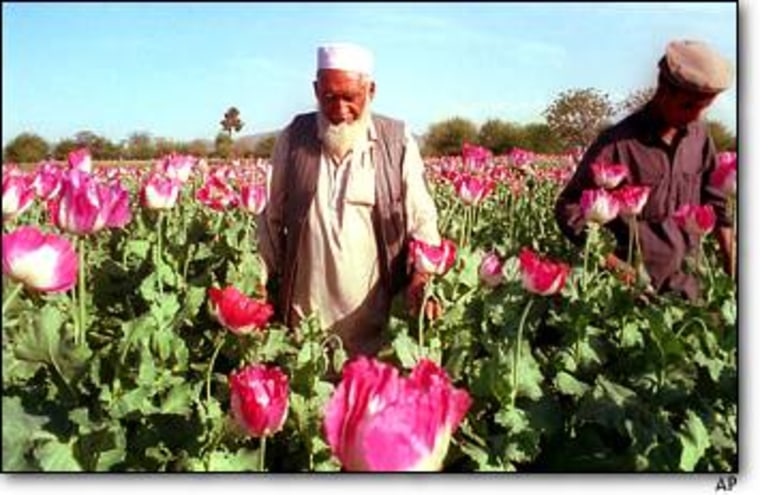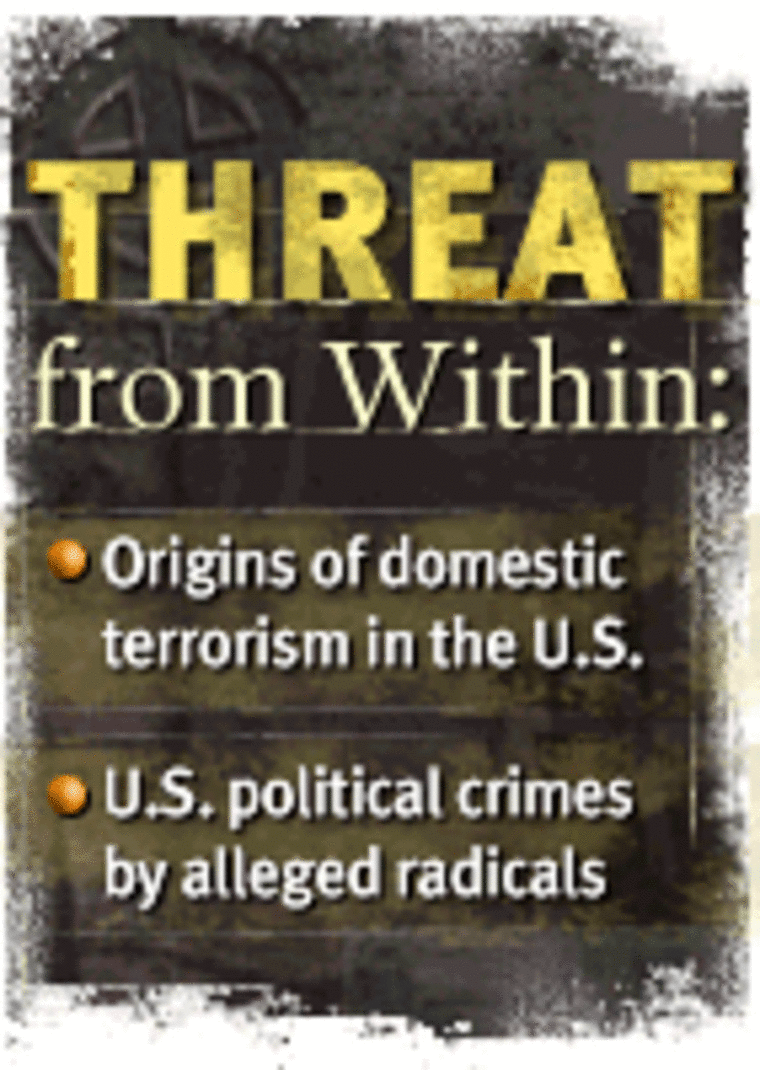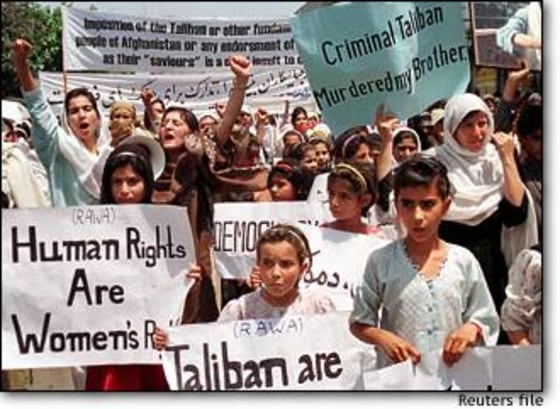It’s rare for the United States and China, Israel and Iran, China and Russia, Egypt, France and India to find a common interest, let alone a common enemy. In the 1950s, Hollywood script writers guessed it would take an invasion from outer space to create such unity. Yet that enemy is here on Earth, if U.S., Russian, Chinese and other intelligence agencies are to be believed. Afghanistan’s Taliban movement is widely accused of sheltering terrorists plotting attacks on Americans, on Indians, on Russians and others. If so, why has this powerful coalition of states done nothing to change this?
There is hardly a power on Earth that isn’t currently looking at Afghanistan’s grab-bag of terrorists, Islamic zealots and heroin-producing poppy farms as the source of a major threat to their national security. For the United States, of course, the threat has been embodied by Osama bin Laden, the banished Saudi exile accused of plotting and/or bankrolling some of the most grievous terrorist attacks of the past decade - most directed at American military or civilian targets. U.S. officials suspect bin Laden may be linked to an Algerian national arrested with a trunkload of bomb material as he tried to cross into the state of Washington.
The Taliban, an overly zealous Islamic movement that captured most of Afghanistan in 1996, has steadfastly refused to hand over bin Laden. In what should have been taken as a warning to the regime, the United Nations Security Council mustered a rare unanimous vote in October to slap an economic embargo on the Taliban.
HEEDING NO ONE
The Taliban, like all religious zealot groups, falls back on “God’s will” when temporal powers like the United Nations make inconvenient demands. It justifies its protection of bin Laden by pointing to his years as an anti-Soviet resistance fighter during the Afghan war.
They also point to the enormous damage done to their nation by the Soviets and the West. The Central Intelligence Agency, using Saudi money and Pakistani territory, turned Afghanistan’s tribal and ethnic groups into small armies to battle the Soviet Union.
When Gorbachev finally pulled the plug on the Soviet travesty in 1989, the groups armed, trained and directed by the CIA changed were set loose on each other. In retrospect, the United States did little to ensure its arms fell into responsible hands. Among the CIA’s star pupils of the era, for instance, was one Osama bin Laden.
The Taliban has stonewalled on bin Laden ever since the United States accused him of bombing the U.S. embassies in Kenya and Tanzania in August 1998, attacks that took over 250 lives.
Just Monday, the ambassador to Pakistan - one of the few nations to recognize the Taliban’s rule, said, “He is just a guest. He cannot act against anyone.”
AU CONTRAIRE
U.S. intelligence agencies disagree, and of late they’ve received a lot of support from other powers. And it’s not just bin Laden. Groups advocating Kashmir’s separation from India, Chechnya’s independence, Islamic rule in former Soviet Central Asian states and independence China’s Muslim region, Xinjiang, all maintain training and organizational facilities in the Taliban’s realm.

Afghanistan’s regime also supports and protects the poppy growers and traffickers who turn out a majority of the world’s heroin.
More generally, some extremist veterans of the long war against Soviet occupation have returned to their homelands, notably Algeria and Egypt, and founded movements that have attempted to use terror to undermine their governments.
THE TALIBAN RAP SHEET
Even a short list of the charges leveled at the Taliban from outside the U.S. hints at the storm brewing against the regime in Kabul:
RUSSIA claims the Chechen separatists its army now surrounds in Grozny had received training and materiel from the Taliban. More seriously (and less substantiated), Russia has accused bin Laden of helping direct a wave of bombings in Moscow and other cities last summer that killed over 300 civilians.
INDIA, always suspicious of Pakistan’s decision to align itself with the Taliban, has since accused the Taliban of helping train Islamic militants who regularly infiltrate Indian-ruled areas of Kashmir. Multiple-death acts of terrorism are a weekly event in that region and one group trained on Taliban territory nearly touched off a full-scale war last summer when it occupied mountain passes claimed by India.
FRANCE has traced bin Laden funds to Algeria’s Armed Islamic Group, or GIA, which has engaged in a gruesome civil war with that North African nation’s military that has claimed up to 100,000 lives. Algerian-related attacks in France over the past five years have taken over 20 lives.
CHINA has accused the Taliban of fomenting Islamic radicalism in its far western Xinjiang province and of supplying the region’s heroin syndicates to help fund the export of Islamic militant violence. Several fatal bombings in China, one on a Beijing bus, were blamed on these groups in 1998-99.
IRAN came very close to war with the Taliban last year after nine Iranian diplomats and a journalist were slain and mobs of pro-Taliban Sunni Muslims went on a killing spree of Shiites in the city of Herat. Mostly Shiite Iran views itself as a protector of the Shiite minorities in neighboring states. The Taliban’s rulers are Sunni Muslims.
WHAT NEXT?
Back in America these days, no thought of using American military force in a far-off land can escape this litmus test: Is is worth risking American lives? If the question were put to the American public, “Should the United States sponsor an international force to establish order in far off Afghanistan?” most people would answer with a resounding “no.”
But if there is real evidence that bombers trained and succored in Afghanistan are planning to strike at U.S. cities, the question changes. The West, which fought a war to rescue Kuwait from Saddam Hussein and Kosovo Muslims from Slobodan Milosevic, has made surprisingly little of a threat to its own populations. Some are asking precisely what order of atrocity will it take for these great powers to put aside their differences and act together against the Taliban and the threat it nurtures. Would the destruction of the Seattle Space Needle have been enough? It’s hard to say.

For all but a tiny minority of this planet, the elimination of the Taliban would be viewed as a service to humankind. Human rights groups regard it as the most abusive regime on the planet. It’s perversion of Islamic law is imposed harshly; minorities treated miserably; women confined to lives approaching penal servitude. Meanwhile, its subjects live in abject poverty as the regime continues to battle the remnants of other Afghan factions who have never stopped fighting since the day the Soviet Union invaded.
Of course, many in the United States and elsewhere may say, “what goes on inside Afghanistan is none of my business.” Fair enough. But what slips out from its uncontrolled hinterland is the world’s business. The only question remaining is what the world’s great powers - always ready to denounce terrorism - are willing to do to prevent it.
Michael Moran is MSNBC’s international editor.
